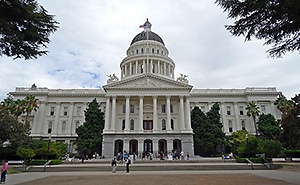Delaware has once again refined the contours of fiduciary duty law with the enactment of Senate Bill 154 (“SB 154”), effective for transactions occurring after January 1, 2025. SB 154 amends the Delaware General Corporation Law (“DGCL”) to provide clarity regarding the corporate opportunity doctrine, board ratification procedures and the treatment of conflicts involving directors who participate in overlapping business opportunities. Because many California headquartered companies are incorporated in Delaware, the amendments create important compliance and ...
For California employers, particularly those in the hospitality and service industries where tipping is customary, remaining compliant with all wage and hour laws has always been paramount. However, a significant development in the state’s labor law landscape, Senate Bill 648, has intensified the focus on one particular area: the handling of employee gratuities. This new law, which becomes effective January 1, 2026, fundamentally strengthens enforcement of California's existing protections against tip theft, and all businesses must now review their gratuities policies ...
The California Supreme Court recently issued an opinion that serves as an important reminder to employers: good intentions regarding compliance with wage laws are not enough to avoid liquidated damages for minimum wage violations. To rely on the statutory good-faith defense, an employer must affirmatively attempt to understand and comply with the law. Simply believing a work arrangement is lawful — or assuming the worker is not an employee — will not suffice.
In Iloff v. LaPaille, a property owner allowed a tenant to perform maintenance work in exchange for free rent. After the ...
Senate Bill 477 amends the Fair Employment and Housing Act (FEHA) to significantly strengthen the investigatory and prosecutorial tools available to the California Civil Rights Department (CRD), in a manner which has consequences for every employer. Collectively, these changes provide the CRD with the flexibility to pursue larger, more complex, and potentially class-action or pattern-or-practice claims with greater depth and fewer administrative hurdles.
One of the most significant changes lies in the tolling of the statute of limitations – the deadline for an employee to ...
On September 29, 2025, Governor Newsom signed into law Senate Bill 53 (“SB 53” or the “Act”), officially titled the “Transparency in Frontier Artificial Intelligence Act”. This legislation is the first U.S. state statute to impose broad transparency, reporting, and whistleblower protections for developers of advanced frontier AI models. In doing so, once again, California strengthens its position as a regulatory leader in artificial intelligence by placing new obligations on large-scale developers while providing a blueprint for national and international AI ...
California once again sets the pace in consumer privacy and digital-platform regulation with the enactment of Assembly Bill 656 (“AB 656” or the “Act”), detailing new obligations for large social-media platforms to facilitate account deletion and data removal. Signed by Governor Newsom on October 8, 2025 and effective January 1, 2026, covered businesses will need to act quickly in order to comply.
In its legislative findings, AB 656 identifies that a “substantial function” of social-media platforms is user-connection, and research has documented entry barriers ...
The landscape of wage enforcement in California has fundamentally changed with the enactment of Senate Bill 261 (SB 261), a law designed to eliminate the otherwise questionable strategy of ignoring wage judgments. Unlike a related measure that was vetoed, SB 261 is set to take effect on January 1, 2026, and introduces a massive financial risk for employers who fail to satisfy court-ordered judgments.
At the heart of SB 261 is a hard 180-day deadline. If a final, non-appealable judgment for unpaid wages remains unsatisfied after this period, the employer faces a civil penalty that can ...
Similar to federal EEO-1 reporting, private employers in California with 100 or more employees must submit pay data to the Civil Rights Department (CRD) by the second Wednesday in May each year. The data must include the number of employees by race, ethnicity, and sex within ten job categories, within U.S. Bureau of Labor Statistics pay bands, and the total number of hours worked by each employee counted within each pay band during a reporting year. Mean and median hourly pay rates by race, ethnicity, and sex are also required. The data is required to enable the CRD to enforce civil rights ...
Q: You have previously written about how the ultra vires exception to the Barton Doctrine is extremely narrow, highlighting a Texas case, In re Preferred Ready-Mix, LLC. When last discussed, you mentioned the bankruptcy debtor had appealed the district court’s decision that the debtor was barred from suing the receiver. Has the appeal been resolved?
A: Yes. In an unpublished decision, issued on New Years Eve, the Fifth Circuit reversed. While the decision was bad for the receiver involved, the result is actually consistent with the legal reasoning in the district court decision ...
Among the nearly 800 laws signed by Governor Newsom in 2025, Senate Bill 642 passed with little fanfare. This may be because SB 642 seems, at first glance, to be clerical in nature. However, California employers should not be lulled by this characterization as the statute is anything but routine. SB 642 is a significant expansion of law which should prompt employers to thoroughly review their compensation practices.
SB 642 begins simply enough by revising the definition of “pay scale”. Labor Code section 432.5 already requires employers to share pay scale information with job ...
Subscribe
Recent Posts
- Delaware SB 154: A Shift in the Corporate Opportunity Doctrine | By: Jeffrey R. Glassman
- New Enforcement Law Requires Review of Tip Handling | By: Jared W. Slater
- California Supreme Court Defines “Reasonable Effort” That is Required for a Good-Faith Defense to a Claim for Unpaid Wages | By: Tanner Hosfield
- New Law Increases Employer Exposure to FEHA Litigation | By: Jared W. Slater
- California’s SB 53: A New Era of Frontier AI Transparency and Accountability Introduction | By: Jeffrey R. Glassman
- California Enacts AB 656: Enhancing Account Deletion Rights for Social Media Users | By: Jeffrey R. Glassman
- The High Price of Delay: California's SB 261 and the Triple Penalty | By: Jared W. Slater, Esq.
- New Law Adds Job Categories to Required Annual Pay Data Reporting and Imposes Mandatory Penalties for Non-Reporting | By: Kelly O. Scott
- How Limited Is The Ultra Vires Exception To The Barton Doctrine? | By: Peter A. Davidson
- SB 642 Clarifies Pay Transparency Requirements and Expands The Equal Pay Act | By: Kelly O. Scott
Blogs
Contributors
- Kelly O. Scott
- Peter A. Davidson
- Jeffrey R. Glassman
- Pooja S. Nair
- Gary Q. Michel
- Kenneth A. Luer
- Byron Z. Moldo
- Geoffrey M. Gold
- Julie R. Zaligson
- Banu Naraghi
- Catherine A. Veeneman
- Elliot Z. Chen
- Eric Levinrad
- Jared W. Slater
- Jason L. Haas
- Kelly W. Cunningham
- Kenny Hsu
- Tanner Hosfield
- Vanja Habekovic
Archives
- November 2025
- October 2025
- September 2025
- August 2025
- July 2025
- June 2025
- May 2025
- April 2025
- March 2025
- February 2025
- January 2025
- December 2024
- November 2024
- October 2024
- September 2024
- August 2024
- July 2024
- June 2024
- May 2024
- April 2024
- March 2024
- February 2024
- January 2024
- December 2023
- November 2023
- October 2023
- September 2023
- August 2023
- July 2023
- June 2023
- May 2023
- April 2023
- March 2023
- February 2023
- January 2023
- December 2022
- November 2022
- October 2022
- September 2022
- August 2022
- July 2022
- June 2022
- May 2022
- April 2022
- March 2022
- February 2022
- January 2022
- December 2021
- November 2021
- October 2021
- September 2021
- August 2021
- July 2021
- June 2021
- May 2021
- April 2021
- March 2021
- February 2021
- January 2021
- December 2020
- November 2020
- October 2020
- September 2020
- August 2020
- July 2020
- June 2020
- May 2020
- April 2020
- March 2020
- February 2020
- January 2020
- December 2019
- November 2019
- October 2019
- September 2019
- August 2019
- July 2019
- June 2019
- May 2019
- March 2019
- February 2019
- January 2019
- November 2018
- October 2018
- September 2018
- August 2018
- July 2018
- June 2018
- May 2018
- April 2018
- February 2018
- January 2018
- December 2017
- November 2017
- October 2017
- September 2017
- August 2017
- July 2017
- June 2017
- May 2017
- April 2017
- March 2017
- February 2017
- January 2017
- December 2016
- November 2016
- October 2016
- September 2016
- August 2016
- July 2016
- June 2016
- May 2016
- April 2016
- January 2016
- December 2015
- November 2015
- October 2015
- September 2015
- August 2015
- July 2015
- June 2015
- May 2015
- April 2015
- March 2015
- February 2015
- January 2015
- December 2014
- November 2014
- October 2014
- September 2014
- August 2014
- July 2014
- June 2014
- May 2014
- April 2014
- March 2014
- February 2014
- January 2014









